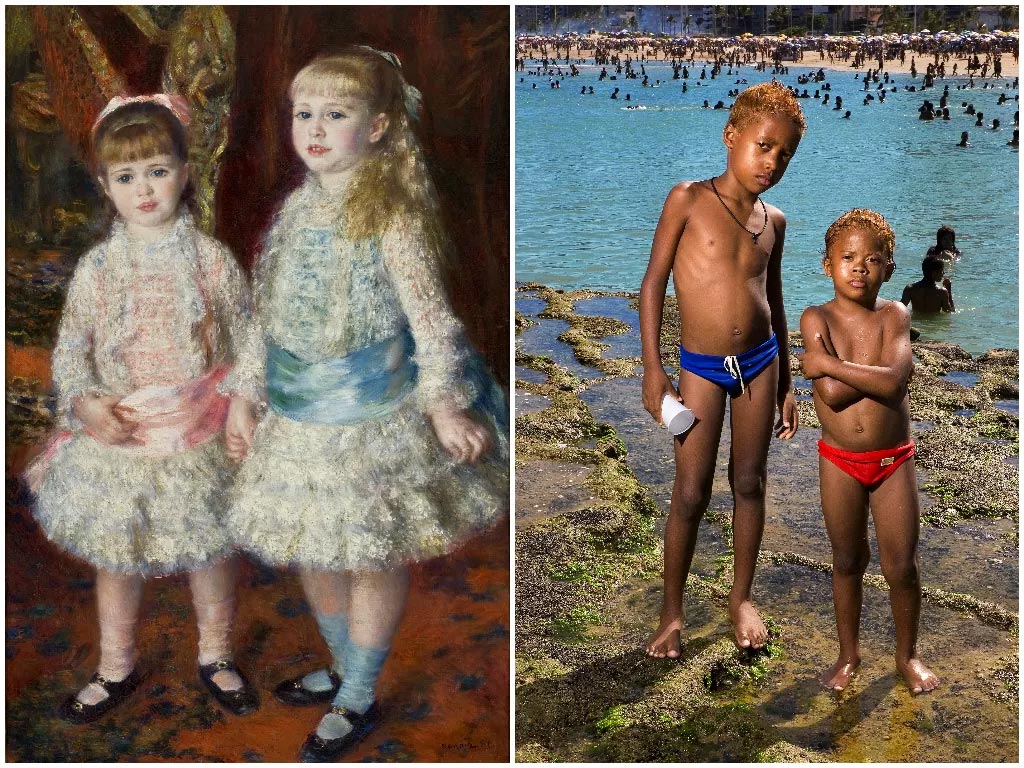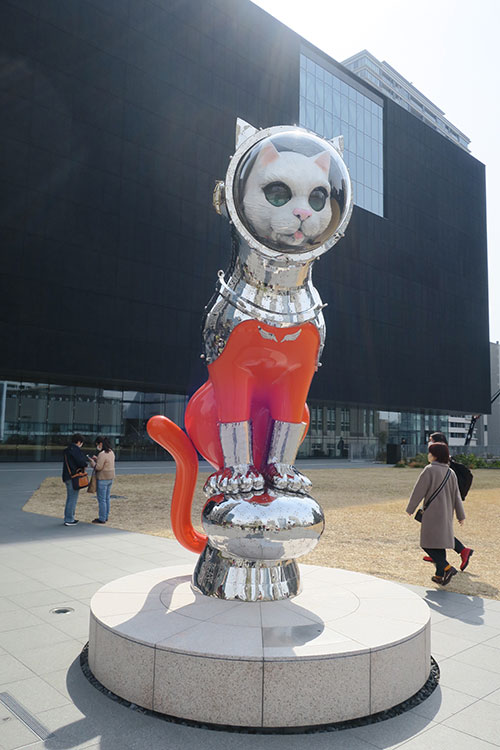Art, Museums and Politics: a dialogue between Brazil and Japan
FULLY BOOKED – WAITING LIST
Please note that as of Tuesday 31 January 2023 this talk is fully booked. If you register from Tuesday onwards, you will be placed on a waiting list. Should a chair become available again, the first person on the waiting list will be invited via a personal e-mail.
If you have any questions, please do not hesitate to contact Annemarie van Leeuwen, Coordinator Outreach & Lectures, at a.van.leeuwen@iias.nl
IIAS Conversation Sessions with professor Mariko Murata, fellow at IIAS, and professor Martin Grossmann of the University of São Paulo (USP).
Organized by Mariko Murata, fellow at IIAS, this session invites Professor Martin Grossmann of the University of São Paulo (USP) to talk about the contemporary state of art and museums in Brazil and Japan. How are contemporary art and contemporary art museums seen in non-Western countries? How have art and museums developed in postwar societies, and what social and political messages do they carry? Taking two countries on opposite sides of the globe, we will examine the uniquenesses and commonalities of Brazilian and Japanese art and museums, as well as their roles in contemporary society.
12:00 – Welcome and introduction by Annemarie van Leeuwen, IIAS
12:05 – Speaker: Professor Mariko Murata
12:30 – Speaker: Professor Martin Grossmann
13:00 – Q&A
13:30 – closing – Annemarie van Leeuwen, IIAS
Please note this is a live session only. The session will not be streamed or recorded.
Registration
Registration is required as seating is limited. Please use the registration form on this page. For people who register in time, a warm lunch will be served.
Political or apolitical? Contemporary art and museums in Japan
Since the early 2000s, along with other East-Asian regions such as China, Hong Kong, Taiwan and Korea, contemporary art and contemporary art museums have been proliferating in Japan. Art festivals are held everywhere, and contemporary artworks are used to attract tourists. Though, by nature, contemporary art has a strong link to society, these artworks can also be pop, apolitical, and enjoyed as pure entertainment. Alternatively, they can deal with social and political issues without becoming too controversial. These are the significant characteristics of contemporary art prized by public museums and the administration in Japan. In other words, public museums and the administration are willing to accommodate them so long as their political message remain within the boundaries of the artworks. In some cases, however, things have turned out quite differently, and messages conveyed by the artists have led to plenty of controversy. In this presentation, I will talk about the “political” situation of contemporary art and museums in Japan.
Short bio
Mariko Murata is a Professor in the Department of Sociology, Kansai University. She is currently a Research Fellow at the International Institute of Asian Studies in Leiden. She specializes in Media and Cultural Studies, and Museum Studies. Her recent papers include “Fostering Diversity through Art/Museums” (Dialogue with Diversities, Iwabuchi K.(ed), Seikyusha Publishing, 2021) and “Decolonizing Museums through Exhibits/Exhibitions: methods to deconstruct the ‘colonial technology’” (Bulletin of the Faculty of Sociology, Kansai University, vol. 53(1), 2021). Her publications include Museums as Ideology: Media Studies on Objects and Spaces (Jimbun Shoin, 2014) and Popular Culture Museums: Collecting, Sharing and Consuming Culture (Minerva Shobo, 2013).
From the Experimental and Radical to the Sustainable and Decolonial: art museums in Brazil
Recently we saw the barbaric scenes of an attempted coup in Brasilia. A horde of thousands of fascists invading and destroying the modernist palaces that represent the three pillars of any democracy: the executive, legislative and judiciary powers. Brasilia also fully represents the Brazilian Modern Project. This presentation aims to analyze how art museums are being designed and developed in Brazil considering important historical, political and epistemological turns in social-cultural and knowledge-based understandings. The initial milestone is, in this regard, The São Paulo International Biennial created in 1951, before Kassel's “Documenta” in Germany. Art museums have a paradoxical place in this Modern National Project where experimentalism and some radical proposals have a distinguished role. However, globalism and the current political crisis in Brazil might also be pointing to a new national project, based, amidst other contemporary socio-cultural references, on sustainability and decolonial concepts and movements. What kind of role might art museums have in the development of this new national project?
Short bio
Martin Grossmann is Full Professor of the School of Communication and Arts of the University of São Paulo (USP) since 2006. His academic and cultural trajectory in this university started in 1985. He is the co-creator and coordinator of Forum Permanente <www.forumpermanente.org>, a critical platform specialized in analyzing and discussing the relationship between contemporary art & culture and their spaces of social reception and interface, such as museums, cultural centers, virtual platforms, etc. He is the academic coordinator of USP's Art & Culture Chair, established at the Institute of Advanced Studies - IEA in 2015, where he was it’s director from 2012 to 2016. Before these positions he was the director of Centro Cultural São Paulo (2006-2010) and deputy director of the Museum of Contemporary Art (MAC-USP) in São Paulo, from 1998 to 2002.

Pink and Blue. The Cahen d'Anvers' girls, by Renoir, and No Title from the series Stubborn Brasilia by Barbara Wagner.

Nakanoshima Museum of Art Osaka which opened in 2022.